Archives - Page 2
-
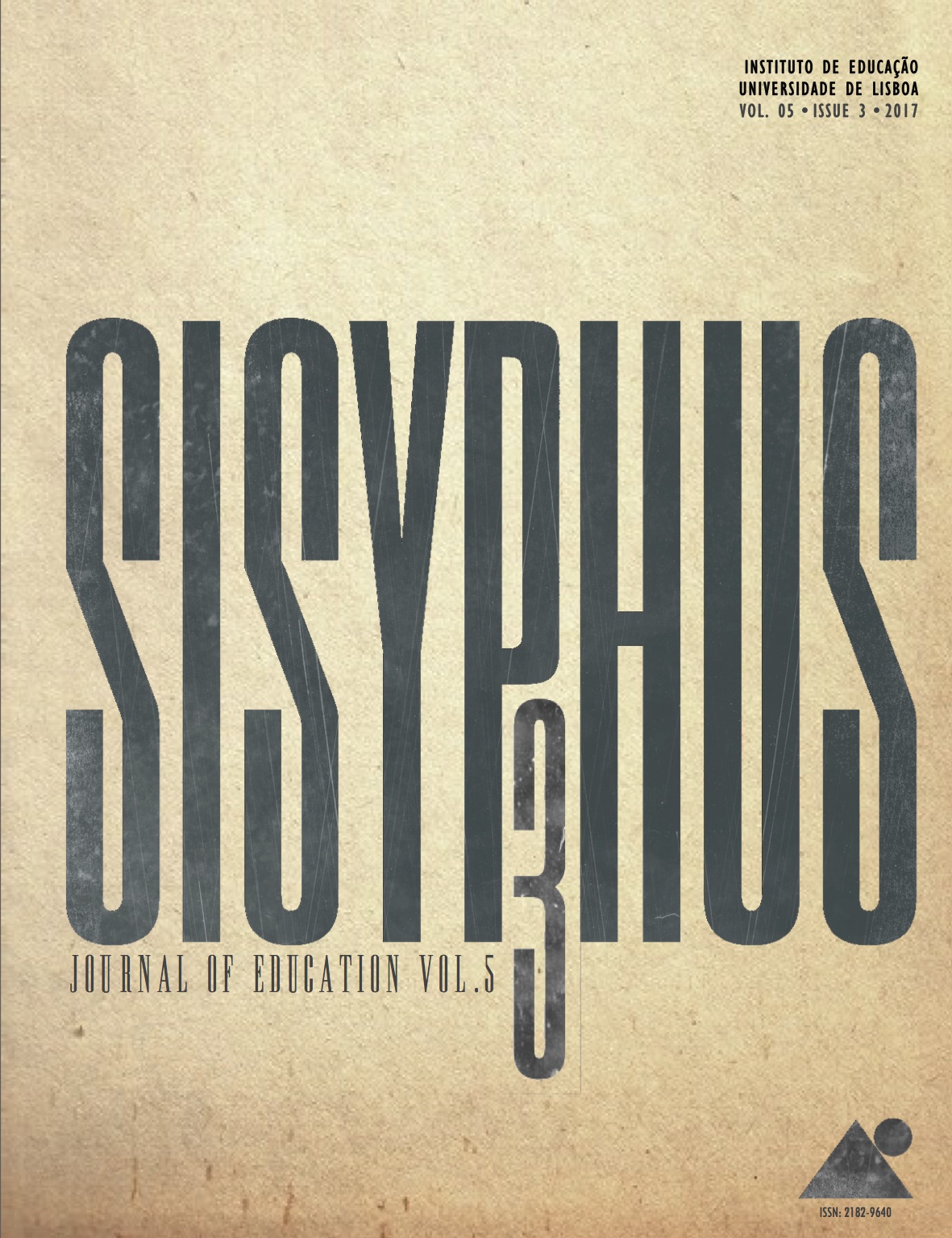
Education and Responsible Research and Innovation (RRI): International Perspectives
Vol. 5 No. 3 (2017)Guest Editor
Marta Romero-Ariza [Universidad de Jaén, Spain]What kind of science education is required in a world deeply influenced by science and technology? How can we contribute to Responsible Research and Innovation (RRI) through science education? Are students and teachers prepared to address current socio-scientific challenges? What kinds of pedagogies foster the skills and values required for taking a critical position in the discussion of socio-scientific problems? Which teaching and learning activities prepare students to actively contribute to the development of smart and creative solutions? These and others are some of the key questions underlying this special issue devoted to education and RRI.
-
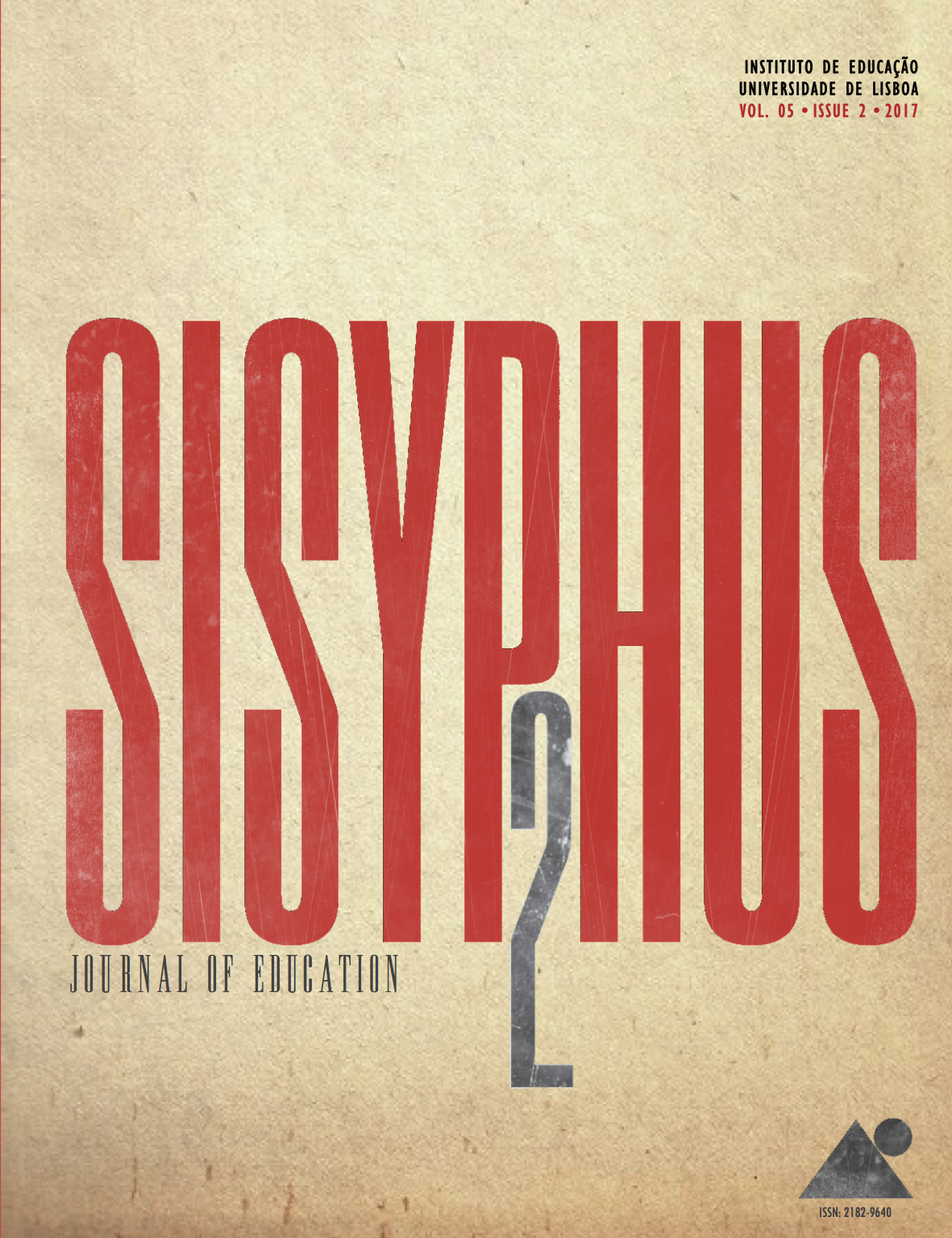
Socially Acute Questions [Questions Socialement Vives]
Vol. 5 No. 2 (2017)Guest Editors
Laurence Simonneaux [Université de Toulouse, France]
Chantal Pouliot [Université Laval, Québec, Canada]Legardez et Simonneaux (2006) ont proposé le terme ‘Questions Socialement Vives’ – (QSV) en anglais ‘Socially Acute Questions’ (SAQ) – pour décrire des questions complexes ouvertes controversées et intégrées dans des contextes réels. Ces questions sont au cœur du problème de l'enseignement et de l'apprentissage dans un monde incertain, influencé par le développement des technosciences et par les crises environnementales et sanitaires. Ces questions situent la controverse sociale et scientifique, la complexité, le renforcement de l'expertise, l'évaluation de la preuve, l'incertitude et le risque au cœur du processus d'enseignement-apprentissage.
-
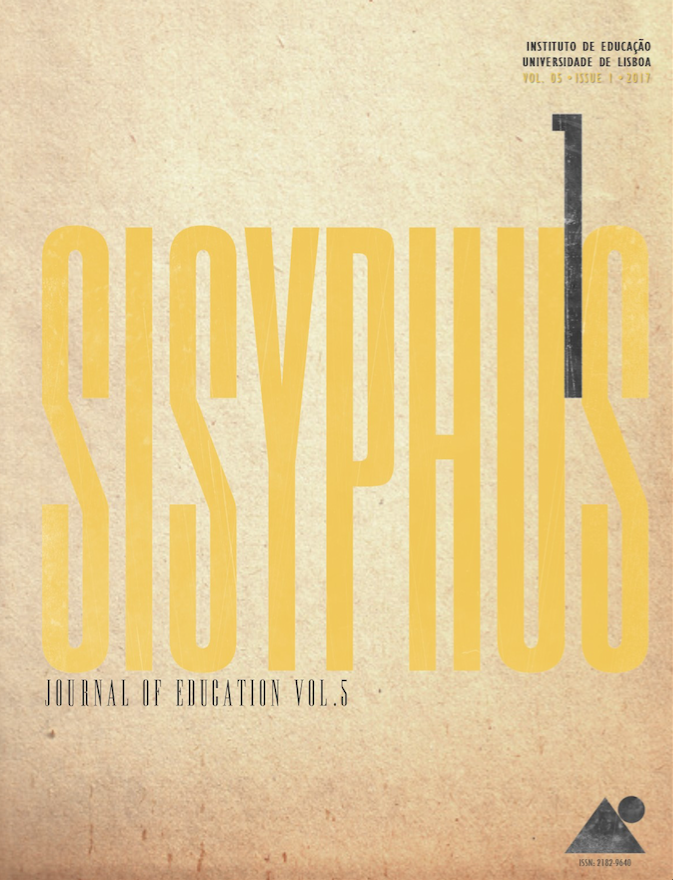
Education: Challenges of an Immanent Research
Vol. 5 No. 1 (2017)Guest Editors
Estela Scheinvar [Universidade do Estado do Rio de Janeiro e Universidade Federal Fluminense, Brazil]
Maria Lívia do Nascimento [Universidade Federal Fluminense, Brazil]
Kátia Aguiar [Universidade Federal Fluminense, Brazil]
Thinking the present as a critical attitude has turned an urgent and necessary task for those who have abandoned a long time ago the polemics around the scientific neutrality and dived into the challenges of an immanent research. From this perspective the know-how of those who research engenders and is engendered on their own ways of researching, since those ways are invested of potencies that generate questions, images, affections. In this way of doing, which also means a way of saying and writing, the research is unfolded and experimentations gain the center of the scene, leading a movement of prudent and moving approach to the context of social practices in the field of education.
We could say, running the risk of lightening the words, that such attitude in research problematizes the social practices and the objects that correspond to them – including the research practices themselves. Proposals that find and call for different intercessors – some closer to microphysics, others to micro politics and, also, to institutionalisms – so they can give visibility to the processes of adjustment, of control and of refusal in the field of education. -
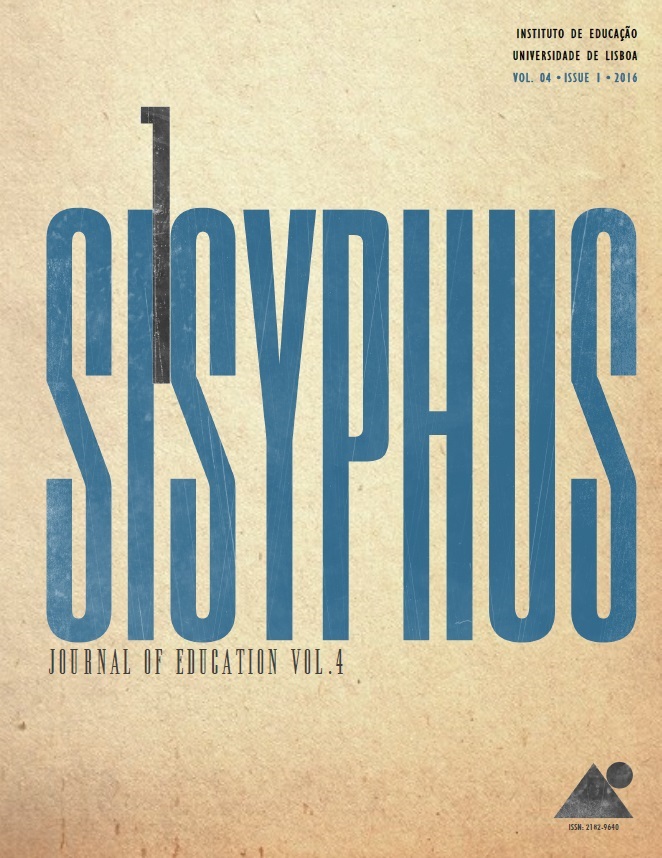
Educational Modernity: Representation and Writings
Vol. 4 No. 1 (2016)Guest Editors
Antonio Viñao-Frago [Universidad de Murcia, Spain]
Justino Magalhães [Universidade de Lisboa, Portugal]The set of texts published in this issue focus, to varying degrees, on the education-institution as a singularity, as an institution-school, or, in a narrower sense, as institutional schooling. From a more objective perspective, they focus on the school. Within the scope of the theme and its timeframe, the concept of representation provides a plurality of objects, figurations, meanings and forms of communication and appropriation. Representation encompasses both the uniform and the diverse, reordering the historical and pedagogical fabric, language, symbology, theoretical and conceptual framework, intentionality and the nature of the object. In other words, it changes authorship and the ways of symbolising and relating.
-
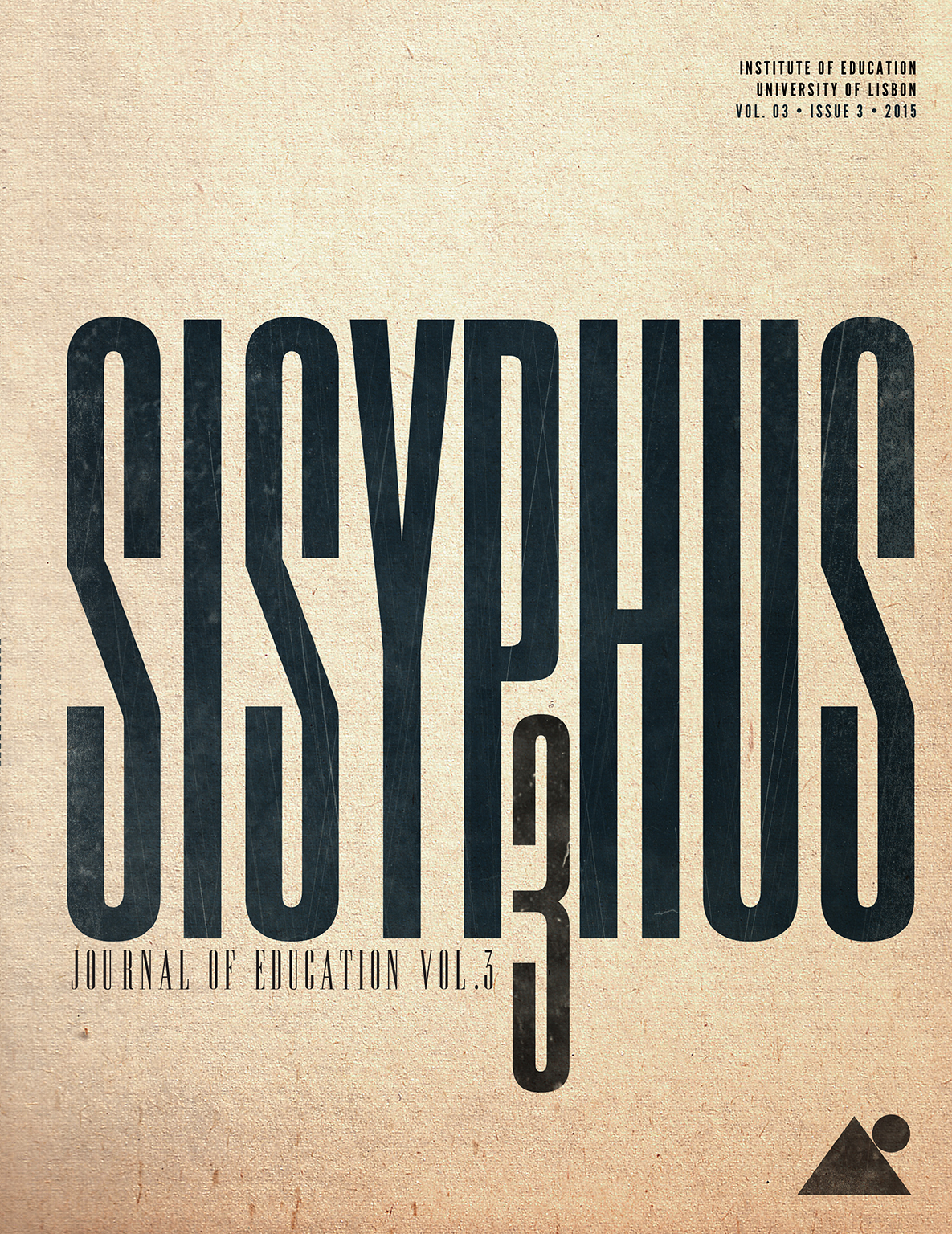
Biopolitics, Education and Latin America
Vol. 3 No. 3 (2015)Guest Editors
Julio Groppa Aquino [Universidade de São Paulo, Brazil]
Maura Corcini Lopes [Universidade de Vale do Rio dos Sinos, Brazil]After the last quarter of twentieth century, it has become almost impossible not to take into consideration the importance of the contributions of Michel Foucault's legacy, and hence, its impact on various fields of human knowledge, concerning the achievement of a more refined comprehension of current social issues. In educational field, in particular, whether in regard to the analysis of the discursive and non discursive practices that currently take place in schooling and beyond it, or in studies on the subjectivation processes and, still, in investigations on the resonances between education and the political, economic and cultural changes in present times, the fact is that Foucault seems to be more alive than ever. (...)
-
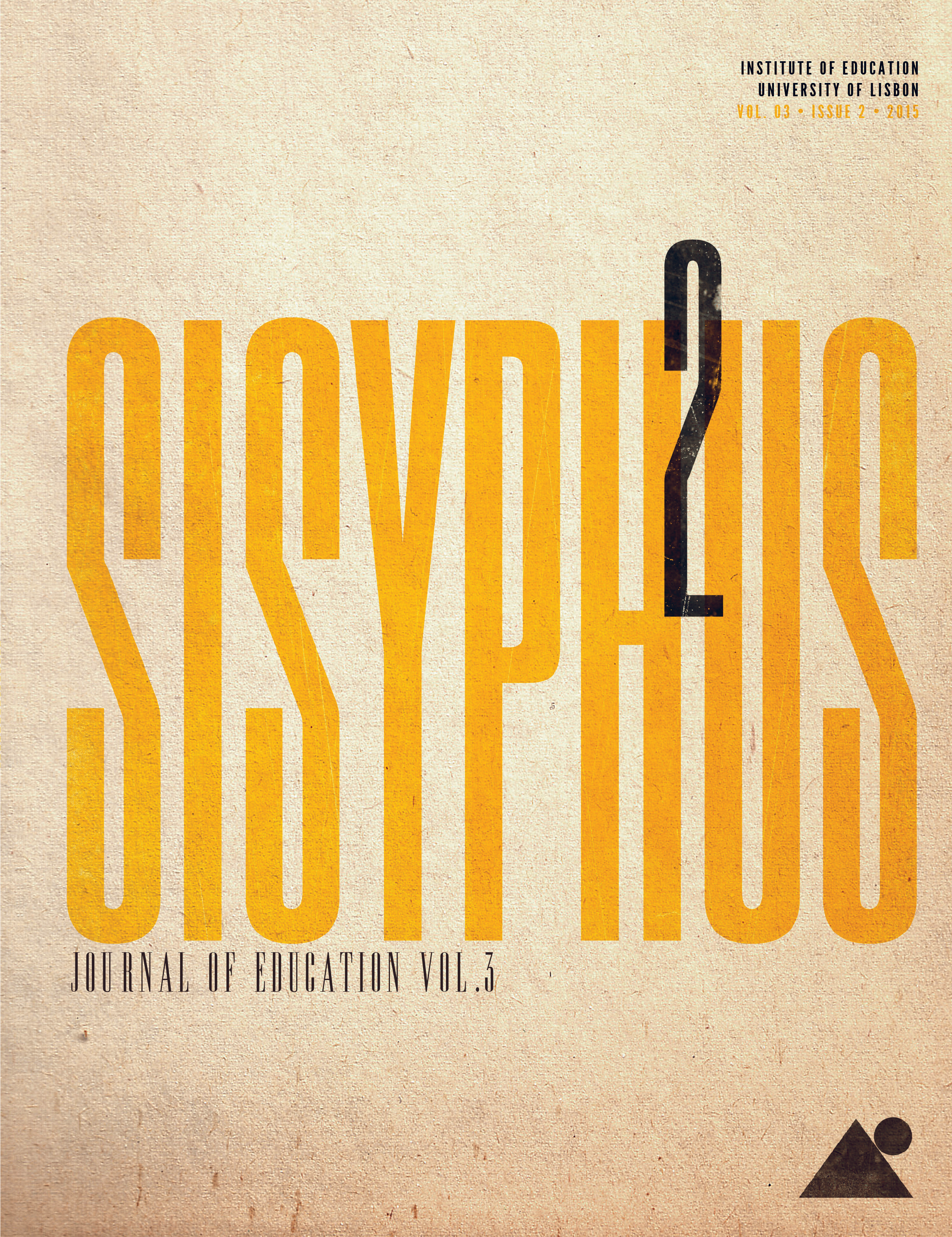
Territorial Specificities of Teaching and Learning
Vol. 3 No. 2 (2015)Guest Editors
Roser Boix-Tomàs [Universitat de Barcelona, Spain]
Pierre Champollion [ECP – Lyon, ESO – Caen and Université Joseph Fourier, France],
António M. Duarte [Universidade de Lisboa, Portugal]The links between education and territory are multiple and complex. No part of schooling can entirely free itself from the territorial context in which the school action plan is included: formal schooling, academic achievement, vocational orientation, didactics, pedagogy, etc. are all more or less according to the territories, more or less according to the educational systems concerned. Thus, the territory can have an external effect on school education as an impact factor, but can also be and/or intend to have a full educational role. It may also impact on education as a whole, even a systemic impact as it is the case in some rural and mountain areas (...)
-
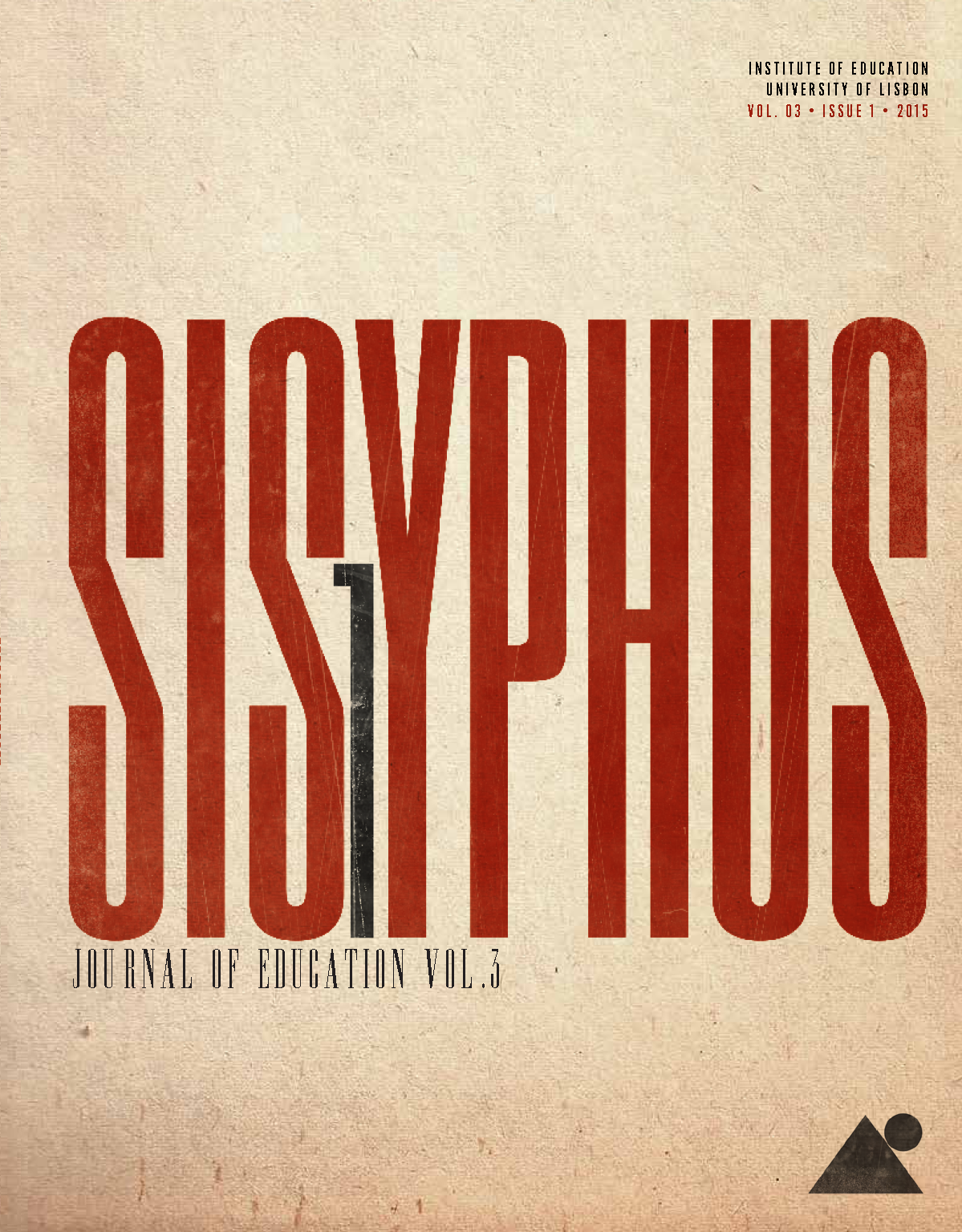
Critical, Cultural and Historical Perspectives on Arts Education
Vol. 3 No. 1 (2015)Guest Editors
Catarina Silva Martins [Universidade do Porto, Portugal]
Thomas S. Popkewitz [University of Wisconsin-Madison, United States of America]The contributions included in this special issue focus on critical, cultural and historical perspectives on arts education, from its 'reason' in schooling to curriculum, pedagogy, the sciences of education and artistic research. The editors invited international scholars for a conversation that breaks conventions in thinking about arts education as an event that engages a broader and simultaneously focused theoretically discussion around problems that directly affect today's arts education disciplinary field. Theoretical yet at the same time historical and 'empirical' through detailed attention to things of the world; an 'act' that itself has repercussions into the very tissues of contemporary thinking about method as distinct from theory; and the real as somehow a distinction field that separates and makes the material as in opposition rather than in relation to language and discourses. The authors provide a family of resemblance to constitute a share common feld of study, commonly referred to as post-structuralism, and therefore operations dedicated to language as embodying historical inscribed systems of reason understood in their productive effects.
-
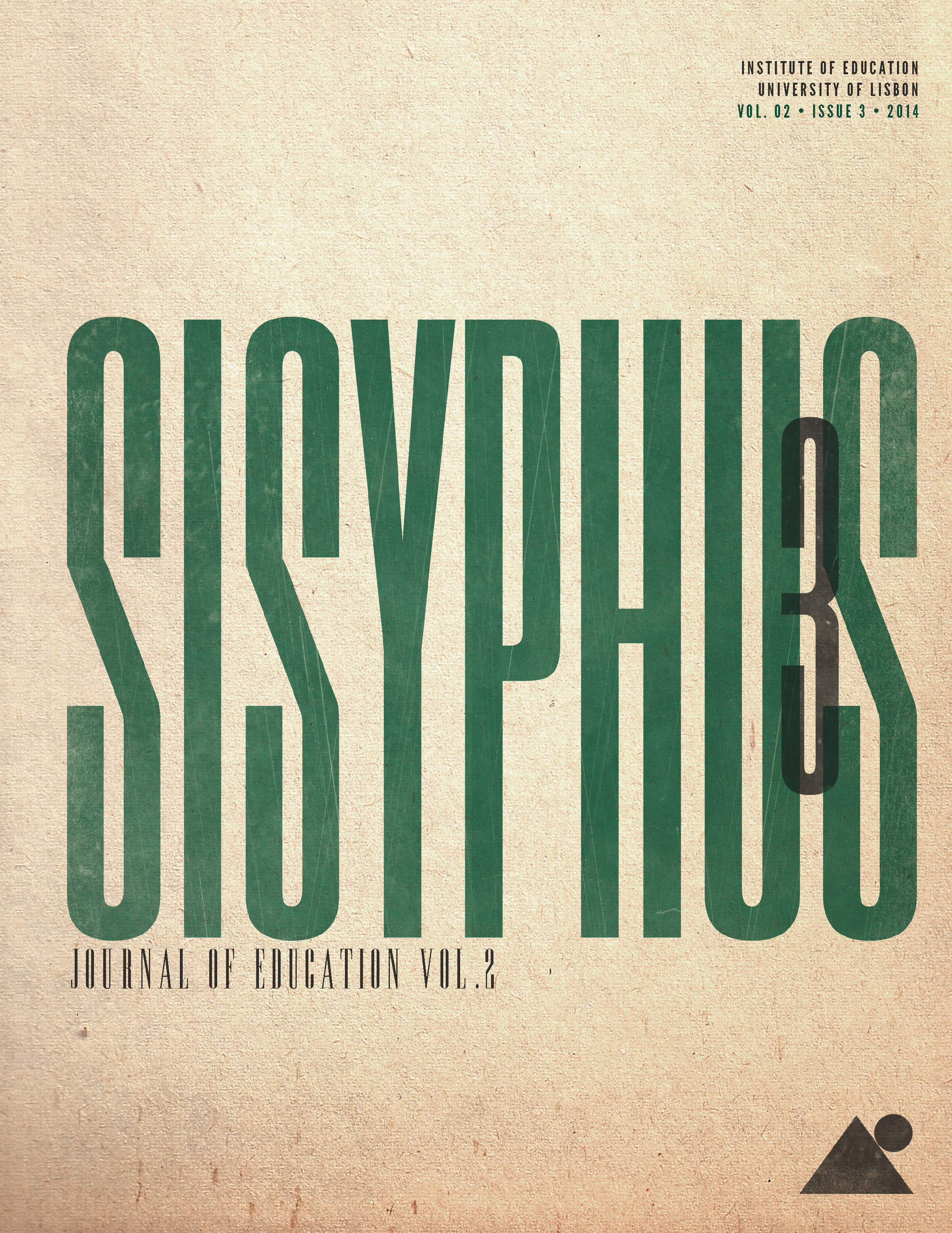
One Planet Residency: Perspectives on Globalisation and Education
Vol. 2 No. 3 (2014)Guest Editors
Laura Colucci-Gray, Donald Gray [University of Aberdeen, Scotland]The contributions included in this special issue of Sisyphus engage with such examination by looking closely at the tacit assumptions that are regulating social and educational systems; the extent to which such assumptions have contributed to the sedimentation of a worldview which has proved to be unsustainable and provide some suggestions for moving away from a destructive path towards new and desirable scenarios. The five papers contained in this issue bring together perspectives from the North and the South of the world; interrogate different aspects of the relationship between globalisation and education and altogether, provide an informative overview of current and topical reflections on education for a "one planet residency".
-
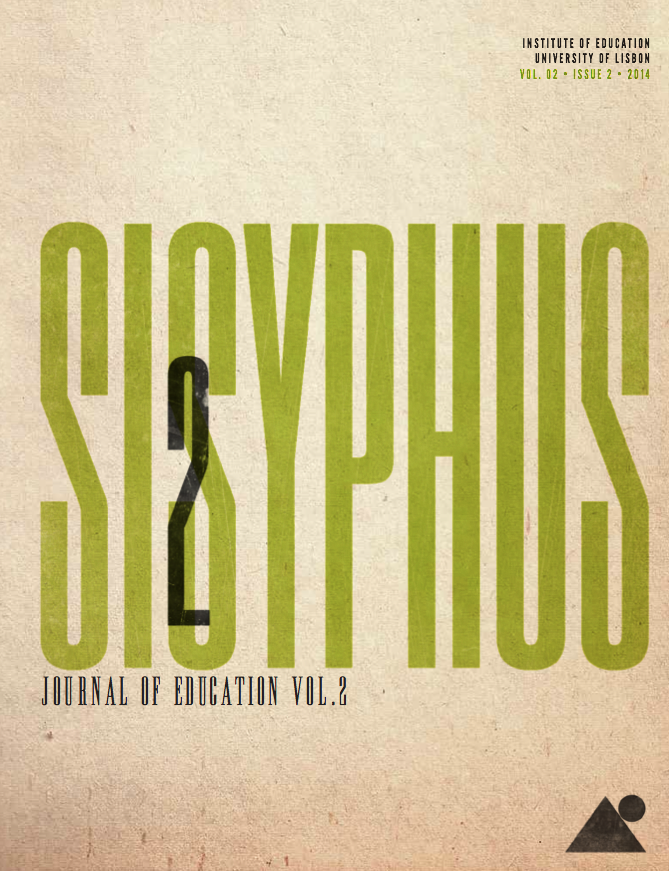
Science Education in the 21st Century: Challenges and Concerns
Vol. 2 No. 2 (2014)Guest Editors
Rachel Mamlok-Naaman, Dvora Katchevich [Weizmann Institute of Science, Israel](...) The issue consists of six papers. In all the six studies there has been done an effort to find out what should be the best ways to motivate students to study science, and to gain inquiry skills. Some studies (e.g. Fraser, 1982) revealed a positive correlation and a causal relationship between achievement in science and attitude constructs, whereas others revealed no clear (or negative) relationship between attitudes towards learning science and achievement (Osborne & Dillon, 2008). International studies have shown that students’ attitudes towards scientific disciplines depend on the extent of their active participation in the learning process.
The main topics of the six studies of this issue are: (1) The link between formal and non-formal learning in science education, (2) students’ linguistic heterogeneity in science, (3) poster exhibition as an effective means of support for teachers to introduce contemporary chemistry topics to high school students, (4) argumentation in the chemistry laboratory, (5) chemistry, industry, and the environment in the eyes of the individual and society, and (6) the inclusion of students with special needs in science classes teaching them inquiry-based activities. All the papers deal with studies which have the similar objectives: How can we involve as many students as possible in science studies? How can we bridge the gap between formal and non-formal education? How can create a productive and encouraging learning environment? -

Frameworks of Regulation: Evidence, Knowledge and Judgement in Inspection
Vol. 2 No. 1 (2014)Guest Editors
Jenny Ozga, Martin Lawn [University of Oxford, United Kingdom]This issue of Sisyphus draws on work in the research project ‘Governing By inspection: school inspection and education governance in England, Scotland and Sweden’. That research seeks to fill a gap in the literature on the governing of education by examining the ways in which inspection regimes may be understood as governing education-in this case in the three national education systems of Sweden, England and Scotland. (...)
-
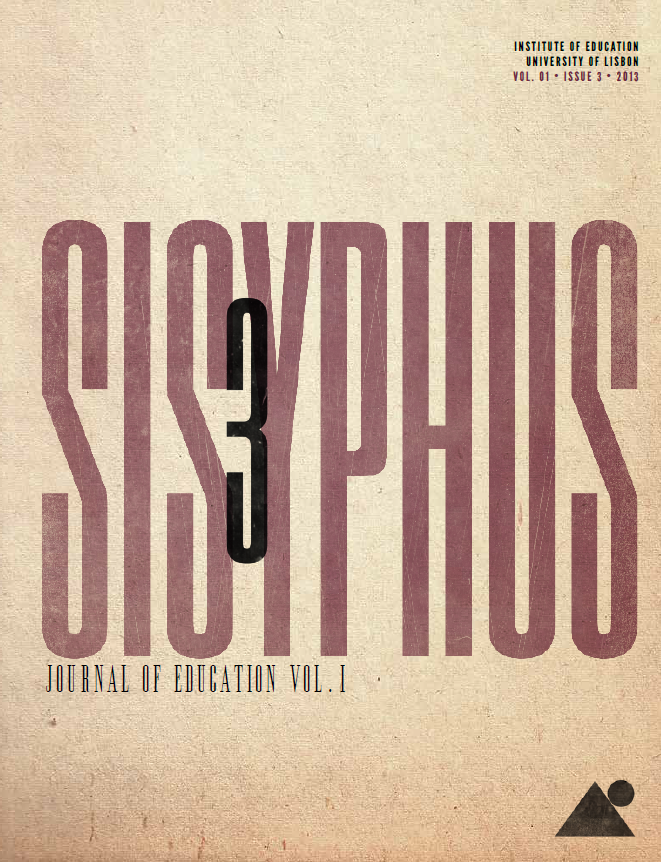
The Professional Practice and Professional Development of Mathematics Teachers
Vol. 1 No. 3 (2013)Guest Editor
João Pedro da Ponte [Universidade de Lisboa, Portugal]Didactics of mathematics has developed internationally as a scientific field of studies in the late 1960s in the wake of the modern mathematics movement. Particularly important landmarks in this development were the creation of the journal Educational Studies in Mathematics by Hans Freudenthal in 1968, and the establishment of the Journal for Research in Mathematics Education in 1970, with David Johnson as its first editor.
In Portugal, didactics of mathematics began as a research field between 1980 and 1990 when the first graduates had obtained their PhDs from foreign universities and when master’s degree programs were set up at Portuguese universities. The national research journal Quadrante was established in 1992. Since then, the mathematics teacher has been one of the subjects to receive the most attention from local and international researchers studying teacher conceptions, knowledge and professional practices, as well as teacher education, development and identity. In the last ten years, the focus on the teacher has clearly been centred on the professional practices, together with institutional conditions and teacher education processes that may promote their transformation in order to further students’ learning. -

Youth: The Right to a Place in the Sun?
Vol. 1 No. 2 (2013)Guest Editors
Ali A. Abdi [University of Alberta, Canada]
Candido Alberto Gomes [Universidade Católica de Brasília, Brazil]
Célio da Cunha [Universidade Católica de Brasília & Universidade Federal de Brasília, Brazil]
Ranilce Guimarães-Iosif [Universidade Católica de Brasília, Brazil & University of Alberta, Canada]One of the most crucial issues today is that of economic growth without a corresponding increase in jobs, especially jobs for youth. The problem is especially acute in countries still affected by the 2008 economic crisis, whose already waning economies have been exacerbated by substantial government and company job cuts. The unemployment queues naturally include a large number of younger people. Yet even when the economic climate was more favourable, young people had already come to realize that securing employment was not only difficult, but often impossible.
As a result, today’s youth have begun to realize that the investment both they and their parents made in their education is unlikely to produce a corresponding financial return. What we have now, therefore, is a high percentage of young people who are not studying, training or working.
With the above-mentioned scenario as a backdrop, this issue of Sisyphus focuses on today’s global youth, with special emphasis on youth education and employment. (...) -
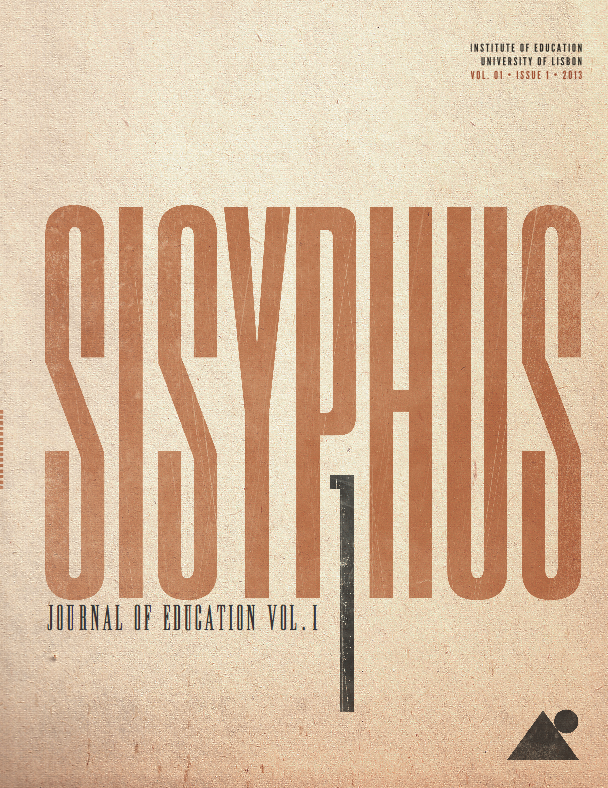
The European Educational Space: New Fabrications
Vol. 1 No. 1 (2013)Guest Editors
Martin Lawn [University of Edinburgh, United Kingdom]
António Nóvoa [Universidade de Lisboa, Portugal]This special issue of Sisyphus brings together five contributions on new fabrications in the European educational space (by Martin Lawn, Thomas S. Popkewitz & Catarina Silva Martins, Anne Corbett, Vita Fortunati, and António Nóvoa). All of them seek to describe the educational problems facing Europe today and analyze the complex issues that underlie the European debate on education. We have also decided to include Francisco Ramirez’s revealing reflection on universities. Though it centres on an analysis of American universities, Ramirez’s essay nevertheless explains many of the developments that are taking place in European universities and in the European Higher Education Area.




